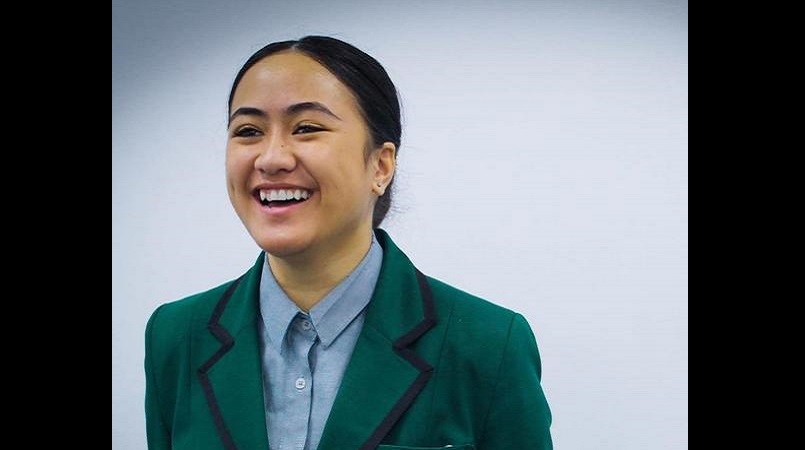
Amidst the Covid-19 lockdown, 17-year-old Aorere College head girl Aigagalefili Fepulea'i-Tapua'i has became a powerful voice for South Auckland students.
She is of Samoan descent, and has spoken out against the continuing negative media portrayal of her community, who were often on the front line as essential workers. She spoke to Kim Hill on Saturday Morning.
In the first leaders debate on TVNZ Aigagalefili asked the leaders of the Labour and National parties, Jacinda Ardern and Judith Collins, what the next government would do to support low decile students forced to drop out of school to support their families through Covid-19 - a topic she's been vocal about this year.
She is co-founder of climate change collective 4 Tha Kulture, an accomplished spoken word poet, winner of the New Zealand Storytellers competition for her piece Waiting for Water. And she has just been announced as a finalist in Young Leader category of the 2020 Women of Influence awards.
Aigagalefili says along with the media attention comes a sense of responsibility to not only communicate her own experiences, and the stories of people around her, but to also always encourage more voices to be heard on these topics.
Asked whether she can be a role model for other Pasifika students to speak out as well, she turns the question around.
"I reckon they're my inspirations, I definitely feel they've been setting an example for me - it's just about mainstream New Zealand being able to actually reach these stories and being able to let them be told."
She's pleased the message is now out that students are being forced out of school by the impact of the pandemic, but says talk isn't enough - now there needs to be action to address it.
"Even prior to Covid-19 all it took was one emergency to make a family struggle financially - say your parents got laid off or got really sick, which is something that's not rare in our community - we're living with elders, a lot of us have elderly parents, have immigrant parents as well.
"A lot of our students, especially year 13s who are the eldest in the family, have felt like they have a responsibility to make sure they're easing the load for their parents when it comes to the financial struggle - that's what forces a student to drop out."
Many take on work to support their families in after-school jobs and night shifts, with precariously variable hours week to week. This puts pressure on their school work and encourages them to quit school.
"A lot of our students were already working before Covid-19 hit, jobs like supermarket jobs, fast food jobs, really high contact jobs as well as factory work," Aigagalefili says.
"Those are the jobs our students are going to, and I think an issue that's not talked about enough is the exploitation of our young workers... employers know very well that a lot of our youth are forced into this situation, which makes them easy to manipulate when it comes to those that aren't used to working full time jobs.
"I don't think nearly enough has happened on a systemic level. There's been a lot of community support and a lot of non-government organisations and charities that have stepped forward to try to help, but I think we definitely need to see more work from the government when it comes to this issue."
She says NZQA should consider promoting credits that can be earned in the workplace and from participation in cultural activities, like taking part in White Sunday celebrations.
The climate change organisation she co-founded, 4 Tha Kulture, came about as an alternative to the School Strike 4 Climate Change movement.
"Last year when the school strikes were happening the first strike was [during] Polyfest, which is one of the biggest Polynesian and Pasifika festivals in New Zealand.
"With the climate crisis there's so many studies and so much evidence the Pacific Islands are on the forefront of the fight against climate change. The UN has named Tuvalu as the country being affected the most. When you look up countries that are highly affected by climate change most of them are Pacific Islands.
"So you question why it is that our Pacific Islander community isn't brought into the climate change discussion, especially our Pasifika youth. That's why 4 Tha Kulture was started. It was a collective of high school students that were organising and mobilising in South Auckland to make sure that the movement was accessible to our students, and it was told through a cultural lens as well, and to make sure that we could be part of the discussion as well."
Aigagalefili says many of the frustrations that have surfaced during the Covid-19 pandemic have been boiling away below the surface for some time.
Among them, a school curriculum where "we don't even get taught about our own history, and our own cultures".
Lines from a piece Aigagalefili has written became viral on social media in May, expressing anger at the social inequality faced by Pasifika: "If education is key, why do the locks keep changing? If knowledge is power, why does it come at a price we can't afford?"
